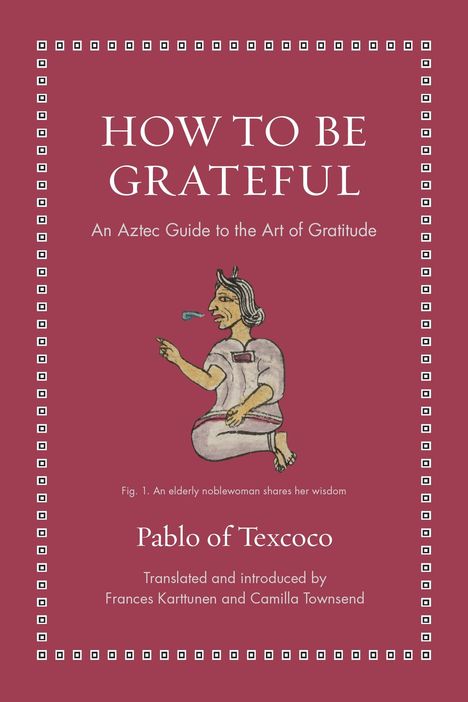Pablo Of Texcoco: How to Be Grateful, Gebunden
How to Be Grateful
- An Aztec Guide to the Art of Gratitude
(soweit verfügbar beim Lieferanten)
- Herausgeber:
- Frances Karttunen, Camilla Townsend
- Übersetzung:
- Frances Karttunen, Camilla Townsend
- Verlag:
- Princeton University Press, 11/2025
- Einband:
- Gebunden
- Sprache:
- Englisch
- ISBN-13:
- 9780691274119
- Artikelnummer:
- 12241537
- Umfang:
- 216 Seiten
- Gewicht:
- 272 g
- Maße:
- 172 x 116 mm
- Stärke:
- 26 mm
- Erscheinungstermin:
- 18.11.2025
- Hinweis
-
Achtung: Artikel ist nicht in deutscher Sprache!
Klappentext
A delightful Aztec work that has much to teach us about the value of giving thanks---to our contemporaries, our elders, and our ancestors
Centuries before anyone ever thought of keeping a gratitude journal, the Aztecs understood the profound value of being grateful. For generations, specially trained Aztec public speakers presented traditional dialogues at marriages, births, funerals, government ceremonies, and other important occasions. In these dialogues, people of different generations are imagined speaking to each other with mutual respect and gratitude across time, encouraging listeners to be grateful to their contemporaries, elders, and ancestors, as well as the divine, and reminding the living what they owe to future generations. In the late 1500s, one of these Aztec speakers, Pablo of Texcoco, recorded a collection of these dialogues, now known as the Bancroft Dialogues. In How to Be Grateful , Nahuatl- or Aztec-language specialist Frances Karttunen and Camilla Townsend, Cundhill History Prize--winning author of Fifth Sun: A New History of the Aztecs , present this fascinating work in an accessible translation that also features the original Nahuatl text on facing pages.
Although Pablo lived under Spanish rule, his parents, grandparents, and elderly teachers recalled the world before the Europeans arrived, and his dialogues, which delight in colorful metaphors and wry humor, offer remarkable insights into preconquest Aztec society, philosophy, and language. Pablo's dialogues tell readers they will be loved and honored today and by future generations if they repay those who have helped them---the living, the dead, and the divine. The living should pay these debts by helping their people and ensuring their future---by "paying it forward" as we say today.


